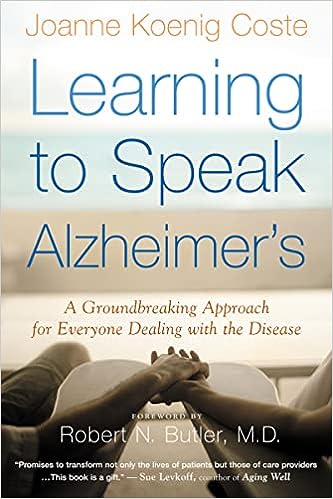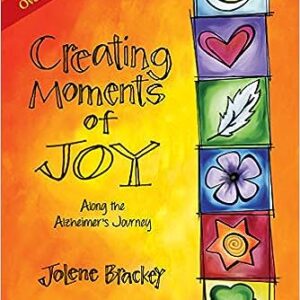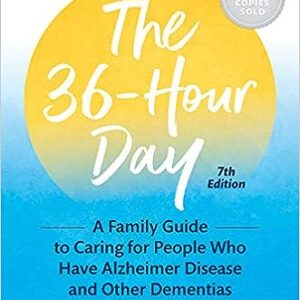Discover effective communication strategies and practical caregiving tips in ‘Learning to Speak Alzheimer’s’ by Joanne Koenig Coste. This groundbreaking book offers empathetic insights into the Alzheimer’s experience, empowering caregivers to provide compassionate care and adapt as the disease progresses. Gain a deeper understanding of Alzheimer’s and enhance your caregiving journey. A must-have resource for everyone dealing with the disease. Get your copy now.
Description
“Learning to Speak Alzheimer’s: A Groundbreaking Approach for Everyone Dealing with the Disease”
“Learning to Speak Alzheimer’s: A Groundbreaking Approach for Everyone Dealing with the Disease” by Joanne Koenig Coste is a highly praised book that offers valuable insights and innovative strategies for communicating and caring for individuals with Alzheimer’s disease.
Here is an overview of the benefits and reasons why someone should consider purchasing this book:
1. Empathetic Communication Techniques: One of the primary benefits of “Learning to Speak Alzheimer’s” is its emphasis on empathetic communication. Joanne Koenig Coste provides caregivers with practical and compassionate methods to communicate effectively with individuals affected by Alzheimer’s disease, helping to reduce frustration and improve the quality of interactions.
2. Understanding the Alzheimer’s Experience: The book delves into the unique perspective of someone living with Alzheimer’s, allowing caregivers to gain a deeper understanding of the emotional and cognitive challenges faced by their loved ones. This knowledge can foster empathy and lead to more patient and sensitive care.
3. Practical Strategies for Daily Care: “Learning to Speak Alzheimer’s” offers a wide range of practical strategies for managing daily care tasks. From dealing with memory loss to addressing challenging behaviors, the book equips caregivers with actionable tips that enhance the individual’s comfort and well-being.
4. Enhancing the Caregiver’s Well-being: Caring for someone with Alzheimer’s can be physically and emotionally draining. This book also focuses on the well-being of the caregiver, providing coping strategies and self-care techniques to reduce burnout and stress.
5. Personal Anecdotes: Joanne Koenig Coste weaves personal anecdotes and stories throughout the book, illustrating the challenges and successes of real-life caregivers. These stories offer reassurance and relatability, making the book an empathetic companion for those going through similar experiences.
6. Adapting Care as the Disease Progresses: As Alzheimer’s disease advances, caregiving needs evolve. This book offers insights on how to adapt care and communication as the disease progresses, ensuring that caregivers can continue to provide meaningful support and engagement.
7. Empowering Caregivers: “Learning to Speak Alzheimer’s” empowers caregivers with knowledge and skills, helping them navigate the complexities of Alzheimer’s caregiving with confidence and compassion.
8. Evidence-Based Approach: The book is grounded in research and practical experience, making it a reliable and trustworthy resource for families and professional caregivers alike.
9. Accessible Language: The author presents complex concepts in a clear and accessible manner, making the book suitable for readers with varying levels of familiarity with Alzheimer’s disease and caregiving.
In conclusion, “Learning to Speak Alzheimer’s” is a valuable resource for anyone involved in caring for individuals with Alzheimer’s disease. Its empathetic communication techniques, practical strategies, and focus on both the individual with Alzheimer’s and the caregiver make it an essential guide for improving the overall well-being of those affected by this challenging condition.


